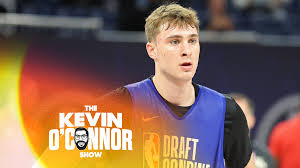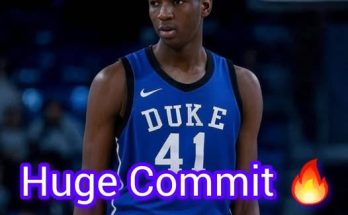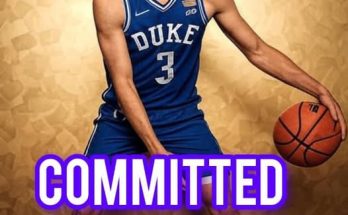Jackson Cantwell has become the focal point of a heated debate in college football circles following reports of a $2 million Name, Image, and Likeness (NIL) deal with the University of Miami. The deal, which has yet to be officially confirmed by Miami or Cantwell’s representatives, has ignited a firestorm of online arguments, with fans, analysts, and stakeholders from across the college sports landscape weighing in.
The crux of the controversy lies in the perceived disparity between Cantwell’s on-field accomplishments and the substantial financial commitment reportedly made by Miami. While the details of the deal remain murky, the mere suggestion that a player with limited college experience could command such a lucrative agreement has raised eyebrows.
Supporters of the NIL system argue that it represents a long-overdue recognition of student-athletes’ rights to profit from their personal brand. They contend that players should have the autonomy to capitalize on their marketability, regardless of their playing time or statistical output. In this context, Cantwell’s deal is seen by some as a validation of the evolving landscape of college athletics, where off-field value can sometimes outweigh on-field performance.
On the other hand, critics view the reported deal as emblematic of the excesses that have come to characterize the NIL era. They argue that such substantial sums should be reserved for players who have demonstrated exceptional talent and achievement at the collegiate level. The notion that a player with limited game experience could secure a $2 million deal is perceived by some as a misallocation of resources, potentially undermining the integrity of college sports.
The debate also touches on broader questions about the role of boosters and collectives in the NIL landscape. While NIL deals are ostensibly intended to be independent of institutional influence, the reality is that many deals are facilitated or influenced by alumni and boosters. This has led to concerns about the potential for pay-for-play schemes and the erosion of the amateurism that has traditionally defined college athletics.
In Cantwell’s case, the reported deal has prompted scrutiny of Miami’s recruiting practices and the ethical considerations surrounding NIL agreements. Some argue that such deals could create an uneven playing field, where wealthier programs can attract top talent through financial incentives rather than meritocratic competition. This, they suggest, could distort the competitive balance of college football and shift the focus from athletic development to financial negotiations.
The situation has also sparked a broader conversation about the future of NIL in college sports. While the initial intent of NIL legislation was to provide student-athletes with opportunities to profit from their personal brand, the rapid escalation of deal values has raised questions about the sustainability and fairness of the current system. Some propose reforms, such as salary caps or centralized oversight, to ensure that NIL deals are equitable and aligned with the principles of amateur athletics.
For Cantwell, the reported deal has thrust him into the national spotlight, whether or not the agreement materializes. He now finds himself at the center of a debate that transcends his individual circumstances, symbolizing the complexities and challenges of the evolving landscape of college sports. Regardless of the outcome, the situation underscores the need for ongoing dialogue and potential reform in the realm of NIL agreements.
, the Jackson Cantwell NIL deal controversy encapsulates the tensions and contradictions inherent in the current state of college athletics. It serves as a microcosm of the broader debates surrounding commercialization, equity, and the future direction of college sports. As the landscape continues to evolve, it will be crucial for all stakeholders—athletes, institutions, fans, and policymakers—to engage in thoughtful and constructive discussions to navigate the complexities of the NIL era.



